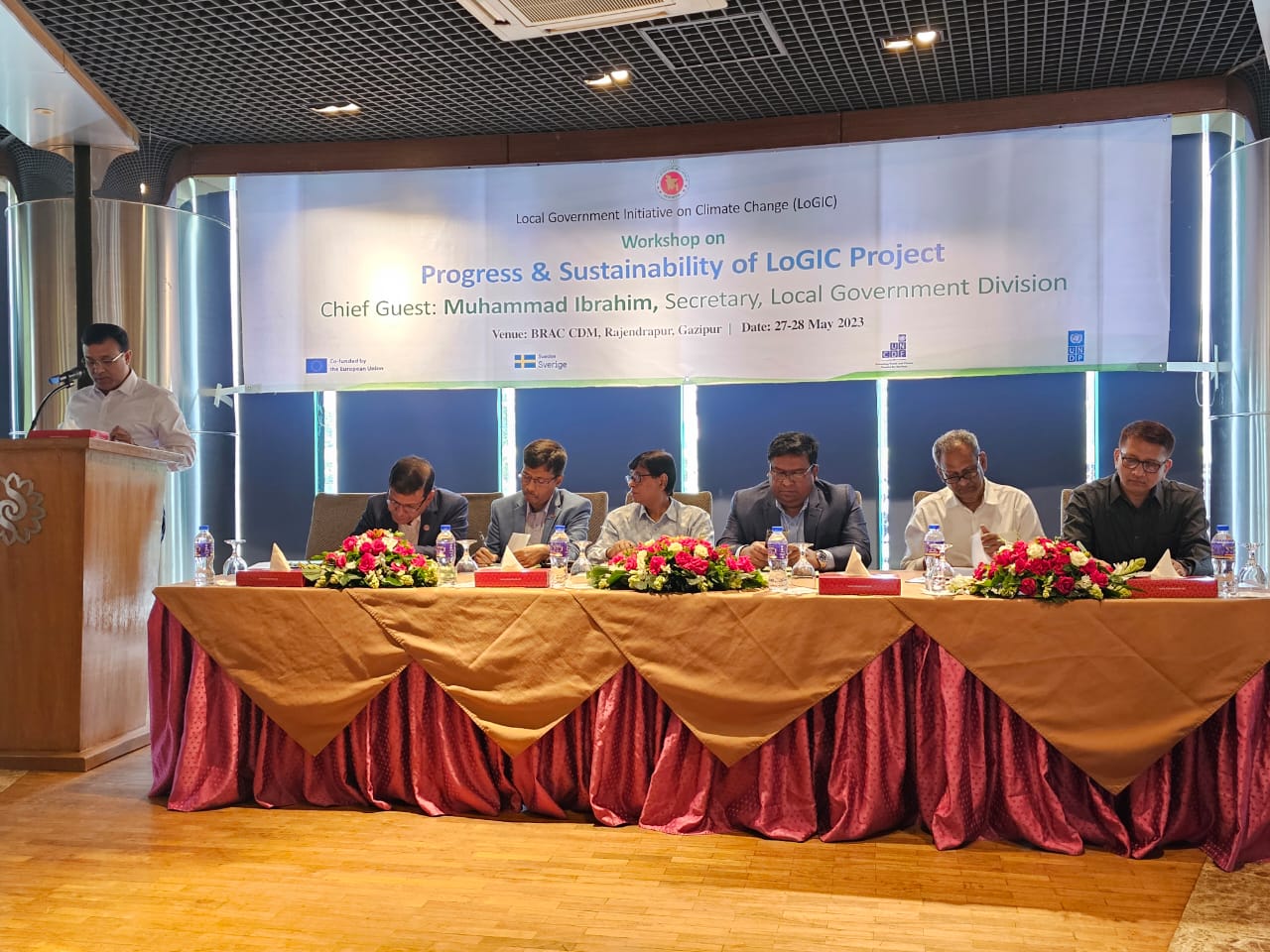A two-day workshop was held to assess the progress and sustainability of the Local Government Initiative on Climate Change (LoGIC) project on 27th-28th May 2023, at the BRAC CDM, in Rajendrapur, Gazipur. The participants in the workshop comprised high government officials from the Local Government Division, Upazila Chairmen, Upazila Cooperatives Officers, and the representatives from the Project Management Unit (PMU), field offices of the LoGIC project and representatives from various institutions involved in climate change and local governance. The diverse range of attendees ensured a comprehensive and inclusive assessment of the project’s outcomes and challenges.
During the workshop, a series of presentations were made to highlight the achievements of the LoGIC project. These presentations showcased the successful implementation of climate adaptation measures at the local level, emphasizing the importance of community involvement and engagement. Additionally, discussions were held on the utilization of climate resilience funds and the effectiveness of performance-based grants in driving sustainable development.
To promote knowledge sharing and collaborative problem-solving, the workshop also featured group activities. One of the main focuses was on central cooperatives, exploring ways to strengthen their role in supporting climate change initiatives at the local level. Participants discussed strategies for mobilizing resources, improving coordination, and sharing best practices among cooperatives.
Another key aspect of the workshop analyzing the existing development plans of different regions and exploring how these plans could be integrated with broader national strategies for climate change adaptation. The goal was to ensure that local initiatives were in line with national priorities and targets, fostering a cohesive and coordinated approach to climate action across the country.
Throughout the workshop, participants engaged in vibrant discussions and knowledge exchange, sharing experiences, challenges, and innovative solutions. They emphasized the importance of tailoring climate change interventions to specific geographical contexts, as different regions face distinct climate-related risks and vulnerabilities. The workshop’s recommendations highlighted the need for context-specific strategies and interventions to effectively address local challenges and priorities.

